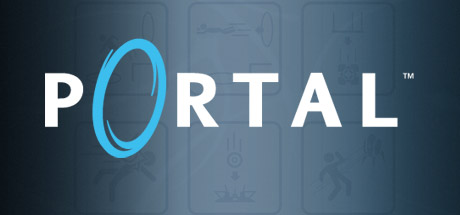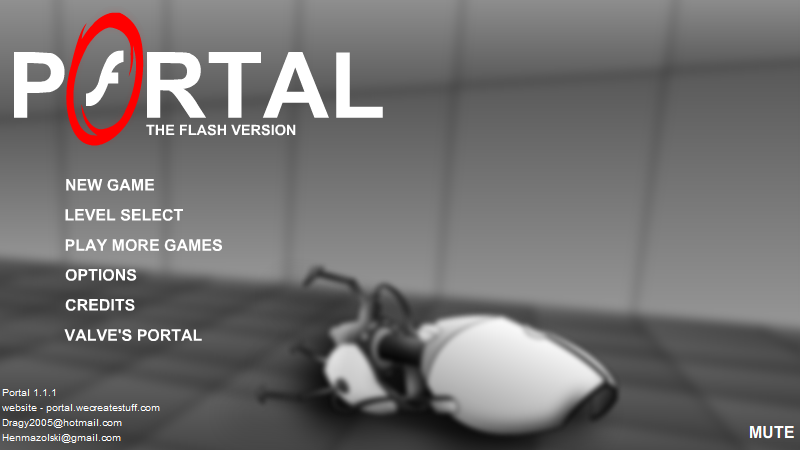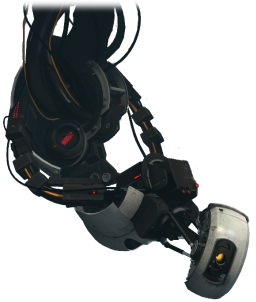Games That Shaped Me: Portal

This is the first in a series of articles about games I feel had a major impact on me. I think it’s important for folks to identify and examine the media that influences their tastes and sensibilities.
With that in mind, I can’t think of any game that shaped my sensibilities more than Valve’s Portal (2007). From the gameplay and writing, to the fan-works and online communities around the game, Portal and everything around it was kind of a big deal to me.
I didn’t play Portal when it came out, and even when I first discovered it, I wouldn’t play it for at least three or so years. Around 2008, I distinctly remember finding the original trailer for the game on YouTube and becoming instantly enthralled. I watched all the videos I could find of it, and I scoured the web to read more about it. I even got to page 10 of the Google search results. I’m sure I was very annoying about this obsession.
Why was I so enthralled with a game that I didn’t have the means of playing? It’s tough to say. The novelty of a game that simulated a world that was just out of reach of what was physically possible was exciting. I loved the idea of the portals and the possibilities they opened up. I was also an enormous puzzle fan, thanks in part to a puzzle-loving grandmother. Finally, the writing of the game struck a chord with me. I hadn’t really played games at this point, and the idea that a game could be so darkly funny and tell a story like this was brand new to me.
So, I did what I’m sure many other folks obsessed with the game but unable to play it did: I played the pants out of the Flash demake of it. Portal: The Flash Version (2007) is a fan game that has the distinct honor of releasing prior to the game it’s based on. This was a 2D version of the game that was developed based entirely on the promotional materials for the game. It’s a fascinating object in its own right, and remarkably well-made and cohesive.

It even received a demake remake in the form of a downloadable map pack for the full 3D game. Even more impressive, this map pack was officially released by Valve on the Xbox 360 as a DLC titled Portal: Still Alive. Wild stuff, but in line with Valve’s history of adopting mods into official titles.

I didn’t acquire the game until around 2011 or so, when Valve had a giveaway on Steam where I could get the game for free. I signed up for Steam then and there, and immediately downloaded it to my cheap laptop. It was a painful experience for my woefully weak computer, but I was one step closer to actually playing it!
I would eventually borrow a family member’s more powerful machine to actually play Portal, and I slowly made my way through the game. For someone who’d never really played a first-person game, it took quite a while. I remember stopping to just play with portals in one of the test chambers, one that featured energy pellets and moving platforms. I spent countless hours just setting portals up to jump through, or toss a cube into. I especially loved setting two side-by-side on the ground and watching a cube bobble back and forth between them.
I didn’t beat the game. Despite my engagement with the mechanics, and my passion for the story and its antagonist GLaDOS, I made it near the escape section and simply dropped it. It was pretty tough for a newbie like me. Besides, my earlier obsession and research meant that I already knew how the story ended.

(yes this is the portal 2 design. I think it’s better anyhow)
Nowadays, I can beat Portal in about an hour, and I can recite many of GLaDOS’ lines before she has the time to say them. A lot’s changed in my life since I first learned of this game, but it’s a staple that I keep coming back to, and its brevity makes it easy for repeat visits.
OK, BUT HOW DID IT “SHAPE” YOU?
The biggest influence the game had on me was from its approach to story. The game almost exclusively has a single speaking part in the form of Ellen McClain’s GLaDOS. But with her performance and the world design in the game, there are hints that tease at a larger world beyond Aperture Science’s walls. This approach to story feels almost minimalist compared to others, but it plays into the strengths of the medium and encourages exploration and fan speculation. For me, this was just a hint at what was possible in games storytelling.
Additionally, I saw that games opened up options in game and puzzle design that were otherwise not possible. The portal-possibilities stuck in my head for a while, and I continue to appreciate novel mechanics like these that stay with you well after the credits roll.
Portal’s a game that I have a soft spot for, and one that played a major role in opening my eyes to the world of games. For that, I’m grateful to it, even if most of that inspiration came from exploring fan works and from me imagining what the game would be like. In some ways, I think that made it even more powerful. It got me started dreaming of what games could be.